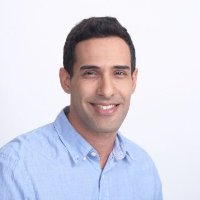At the Forefront of Stem Cell Research

Dr. Koby Baranes develops stem cell research models, in hopes of discovering improved treatment methods for autism and multiple sclerosis
Dr. Koby Baranes has spent the past six months working at a prestigious lab at Cambridge University, which developed an innovative forward reprogramming technology, using stem cells to develop genetic therapy and diseases models. “Working with stem cells, the underlying goal is to reprogram the cells so they will differentiate into the specific cell we are interested in,” explains Baranes. “In the conventional method, the stem cells were given certain factors to their media, chosen according to the subject cell. However, that is a lengthy, months-long process. With time, the use of ‘Forward Reprogramming’ began, commonly by viral transduction, in order to introduce the cell genome with transcription factors, causing the stem cells to differentiate to the desired cells. With the new technology we’ve developed, named OPTi-OX, we create genetic modification via homological recombination. That is, we introduce two new fragments into the DNA – one containing the transcription factors, and the other, doxycycline, for activation or suspension of these transcription factors. This way, the process is more controllable and last anywhere from a few days to one month, depending on the type of cell we are studying. Also, here, the genome targeting is much more accurate and the efficiencies reach above 90%. This approach is also safer because it doesn’t require the use of viruses.”
Baranes, 38, acquired a BSc in Biology and Chemistry, and an MSc in Neurobiology. He completed his PhD in Neuro-Engineering at Prof. Orit Shefi’s lab at BIU. Currently, his research focuses on autism and multiple sclerosis, “but this new technology can be used to create models for other diseases as well. It’s an opportunity for new collaborations, and we’ve been receiving requests from numerous labs asking to apply this technology to other diseases.”
Last Updated Date : 04/12/2022



